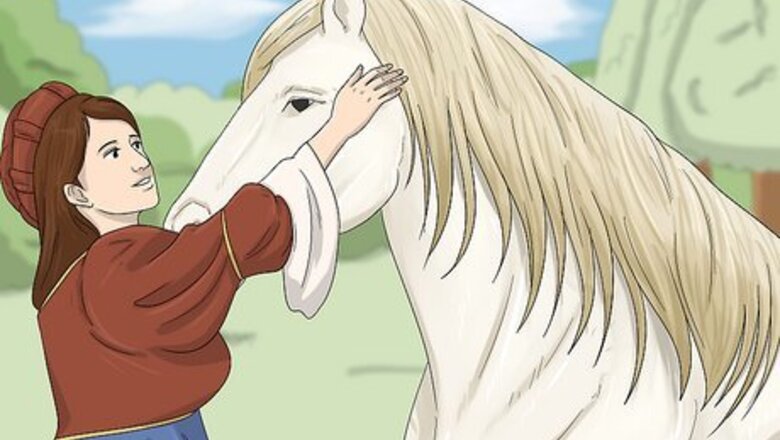
views
- White horses often appear in mythologies as steeds of deities or holy figures, like the Buddha’s white horse Kanthaka or Odin’s eight-legged steed Sleipnir.
- In the Bible, one of the four horsemen of the apocalypse, Conquest, rides a white horse. Christ is said to ride a white horse at the second coming.
- Dreams of white horses often symbolize your own confidence, enlightenment, luck, or ability to overcome your troubles.
White Horses in Mythology
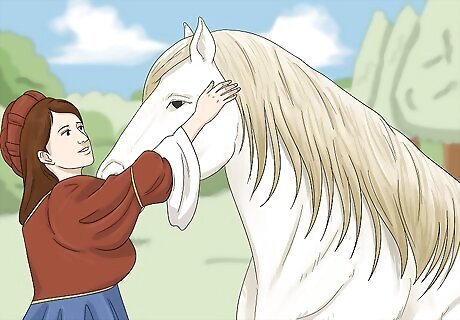
Celtic: mystery and divinity Rhiannon, a prominent character in Welsh mythology, famously rides a white horse. It’s said that her future husband encounters her riding slowly past him, and he and his messengers, entranced, give chase. But even though she’s riding slowly, they’re unable to catch up to her. In other myths, the god of the dead is portrayed as a white horse, and is also a manifestation of the Dagda, or one of the primary gods. The White Horse of Uffington is a 374 feet (114 m) long image of a white horse on a hillside in Oxfordshire. It’s thought to have been created the Belgic tribe, who are said to have worshiped horses.
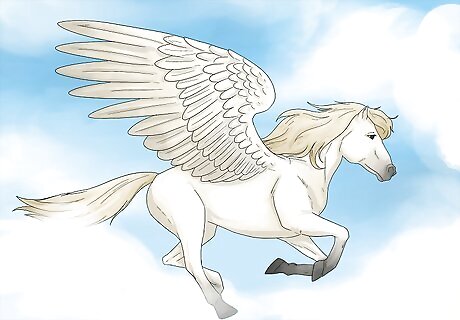
Greek: safety and beauty When the Greek hero Perseus slayed Medusa, it’s said that the brilliant white Pegasus—a winged horse—emerged from her severed neck. Perseus rode Pegasus to safety as Medusa’s sisters chased after him. The hero Bellerophon was also said to have tamed Pegasus with Athena’s help. Today, Pegasus is seen as a swift, loyal, and noble symbol of strength. It’s also said that Poseidon created beautiful, rushing white horses out of the foam of breaking waves to prove his power.
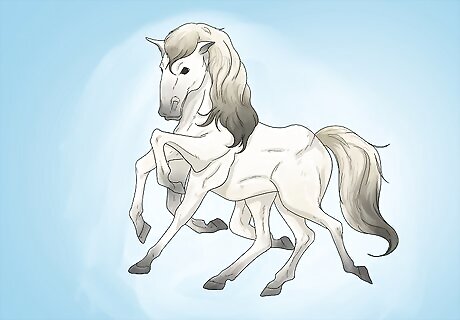
Norse: power and strength In Norse mythology, the god Odin rides a mighty eight-legged horse named Sleipnir, which is described as white or gray. Sleipnir is the son of Loki and the stallion Svadilfari. According to some myths, Sleipnir’s hoofprints created canyons in the earth as he ran, a demonstration of his great power and strength. Sleipnir’s 8 legs are also said to give him exceptional speed, earning him the title “fastest among the horses.
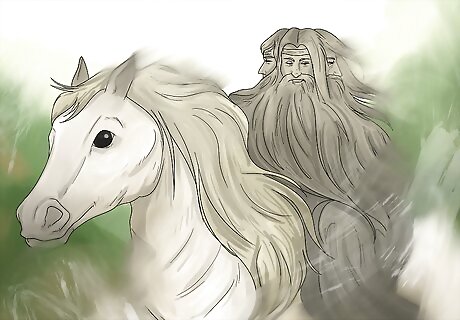
Slavic: knowledge and war The god Svantovit is a chief god in Slavic mythology, and is known as the god of both fertility and war. He has four heads, one to face each cardinal direction, and together they contain immense knowledge. But such a formidable god needs a formidable steed—he sits atop a white horse mighty enough to carry him. The horse is said to be an oracle, and gave its people the gift of knowledge through a ritual in which it stepped over 3 rows of spears.
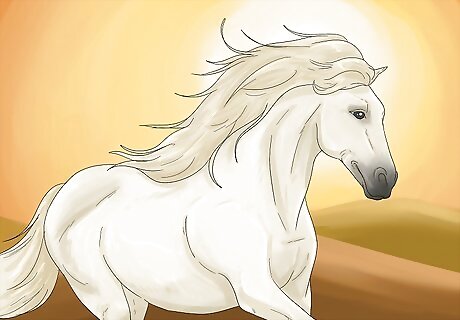
Hungarian: conquest and peace In Hungarian legend, it’s said that the ancient Magyars, after conquering a territory, would perform a peacekeeping ceremony in white an animal (often a white horse) was sacrificed, water was poured on the ground, and the horse’s saddle turned around. It’s also said that in the 13th century, the Hungarians bought the Carpathian basin from the king of Moravia for the price of a white horse.
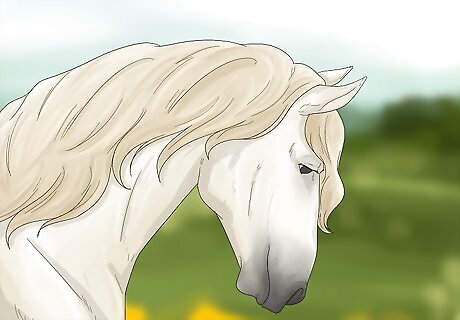
Iranian: bounty and faith In Iranian mythology, Tishtrya, the god of harvest and rains, is said to be a white horse with golden ears. He speeds through the sky and dips down to earth to battle Duzhyairya, a witch who brings poor harvests. It’s said he relies on the belief and faith of his people for strength. Then, Mithra, one of the primary gods of the Iranian pantheon, is said to ride a chariot drawn by white horses.
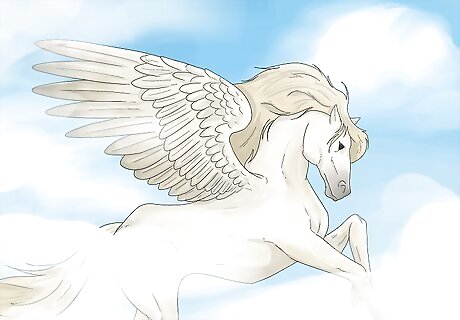
Korean: spirituality and death In the Silla era of Korea (57 B.C.-935 A.D.), the mystical horse Cheonma, a white winged stallion, was said to fly between heaven and earth and back. Along the way, it ferried the souls of the dead to the afterlife. Also according to legend, the ruler of Silla was said to have emerged from an egg watched over by a mystical white horse.
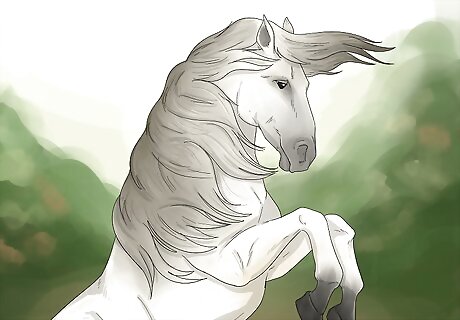
Filipino: safety and loyalty The Filipino city of Pangantucan is dedicated to a mythical white horse that’s said to have saved the city from a band of raiders. The story says that the ruler of the city’s loyal white horse sensed the threat and uprooted a stalk of bamboo as a warning to his master, who took note of the horse’s behavior in time to defend the city.
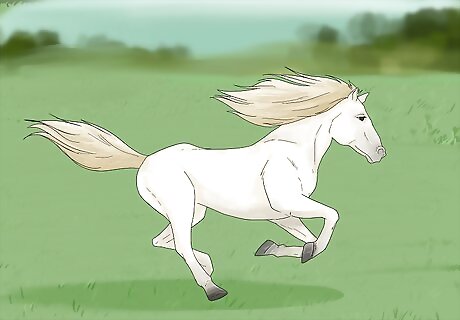
Vietnamese: guidance and wisdom According to legend, when Vietnam gained independence for China, the new ruler Ly Cong Uan had difficulty finding a place to build a citadel. Anytime he tried to build walls, the marshy land destroyed his efforts. That is until he had a vision while praying of a white horse galloping away, leaving a trail of footprints in a circle. Ly Cong Uan built his citadel on the ground marked by the footprints, and made the white horse the official spirit of the new city, Thang Long. It’s said that Ly Cong Uan believed the white horse to be a manifestation of To Lich, a river god.
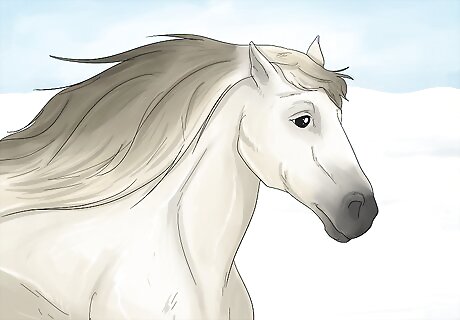
Native American: winter and cold The Blackfeet Nation of Montana believes that the earth belongs to Punotsihyo, or “the ground man.” His counterpart, Aisoyimstan, or “cold maker,” is a white-skinned man with white hair, white clothes, and riding a white horse, who brings the cold and freezes the earth, covering it with snow.
Biblical and Religious Meanings of a White Horse
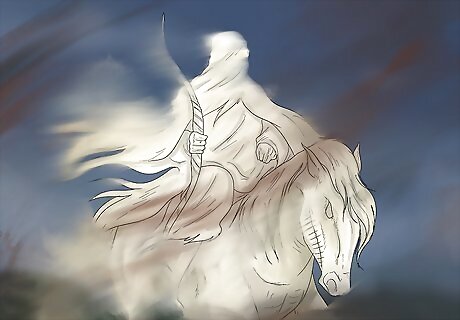
Christianity: war and salvation In the Bible, a white horse famously appears in the book of Revelations. One of the four horsemen of the apocalypse, Conquest (or Pestilence), rides a white horse. Later, Christ the savior is depicted as riding a white horse and is followed by the armies of heaven, themselves riding white horses. The verse says that this horsemen will “strike down the nations.” A number of saints are also often depicted riding white horses, like Saint James the Apostle and Saint George, patron of horsemen, who was famously said to have slain a dragon.
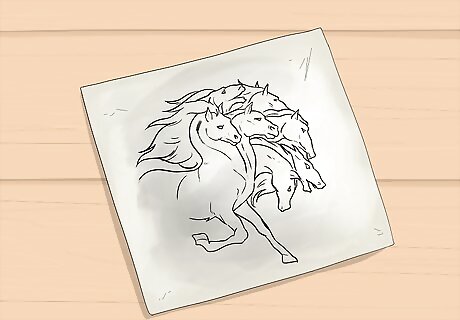
Hinduism: divinity and wrath Uchchaihshravas is a snow-white, seven-headed flying horse in hindu mythology, said to have emerged from the churning ocean. It’s said to be the steed of Indra, or the god-king of the heavens, while also belonging to the king of demons, Bali. A Vedic religious tradition involved the sacrifice of a white horse to establish his rule. The deity Hayagriva, said to be a wrathful entity, is sometimes depicted as a man with 3 horse heads, one of which is white. Also, Kalki, the final incarnation of the god Vishnu, is said to one day ride a white horse when he comes to destroy the unjust.
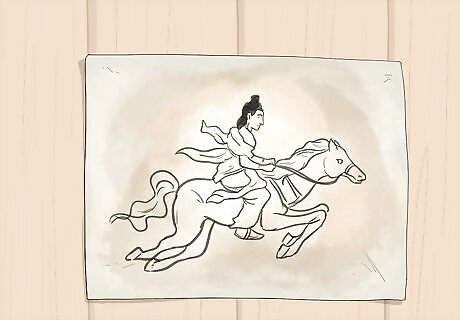
Buddhism: loyalty and grief The Buddha is said to have a white horse named Kanthaka. According to Buddhist stories, Kanthaka helps Prince Siddhartha (the Buddha-to-be) ride away from his father’s home in an event known as the Great Renunciation. Kanthaka later returns to the palace alone and faces the wrath of Siddartha’s family. It’s said that Kanthaka later dies of grief when the Buddha deserts him.
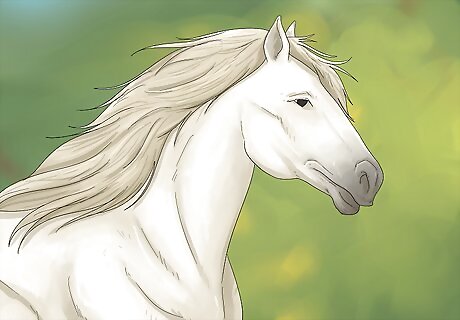
Judaism: safety and peace In the book of Zechariah, the narrator describes seeing chariots drawn by red, black, gray, and white horses. The chariots split and go to each of the four cardinal directions, patrolling the earth and keeping it safe and peaceful.
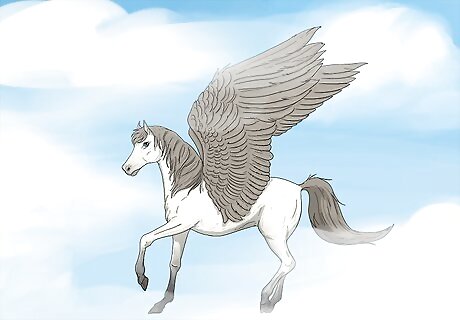
Islamism: divinity and ascension In Islamic tradition, the white winged horse Buraq (also sometimes a mule, donkey, or a hybrid of the two) carries the prophet Muhammad to the city of Jerusalem in the night. This story became linked to the prophet’s ascension to heaven, with some traditions stating that the prophet rose to heaven on the back of Buraq. It’s also said that the Mahdi, an authority figure that will appear at the end times, will come riding a white horse.
White Horse Dream Meanings
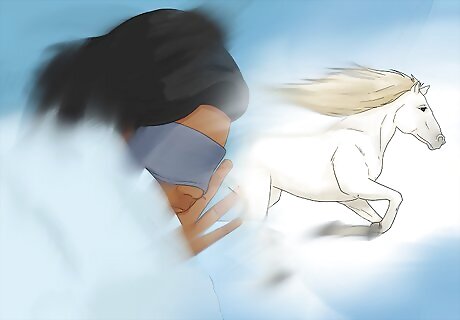
White horses in dreams are symbols of change or enlightenment. Generally, dreams about white horses symbolize spirituality, knowledge, and freedom. White horses appear in various mythologies to bring purity and liberation to their riders. Dreaming of a white horse, then, is often a sign that some form of transformation or enlightenment will come to you, too, whether it’s new knowledge about a tricky situation, newfound happiness, or growth on your spiritual journey. What to do: Deal with change by keeping a journal of what’s happening and how you feel about it. Often, putting our emotions into words is a great way to help us track our growth and put it into perspective.
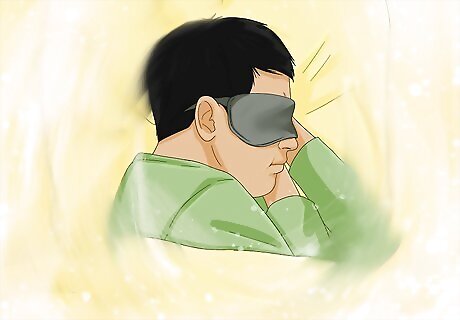
Riding a white horse symbolizes confidence and good luck. Riding a white horse in a dream often brings feelings of power, strength and confidence. These dreams often suggest that you feel in control of your life and able to overcome any obstacles. When the time comes to face those obstacles—financial obstacles, relationship troubles, personal doubts—luck and courage will be on your side, and you’ll emerge victorious. What to do: Have confidence that you’ll be able to conquer your troubles. In the meantime, stay motivated by visualizing your end goal to help you stay focused, but don’t forget to take a break now and then to keep you energized.
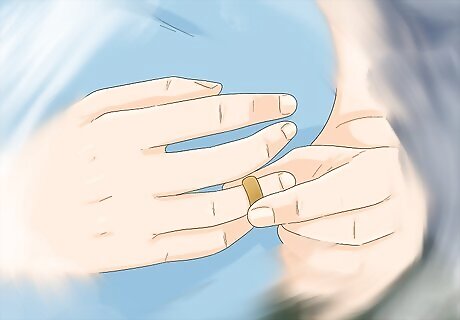
Dead white horses may symbolize an ending relationship. Seeing a dead white horse in a dream is never pleasant. It’s the end of something powerful and strong. If you encounter one, you may be having trouble with a friendship or even a romantic partner, and you worry that the relationship is about to end, the same way the white horse dies in your dream. That anxiety is taking over your subconscious. What to do: If you want to save the relationship, ask yourself: What’s the root of the problem? Is it a misunderstanding? Is it a difference in values? Identifying the core of the issue helps you find a way forward. Then, have a serious conversation about the relationship. Clearly state how you feel, and listen openly to how the other person feels, too.
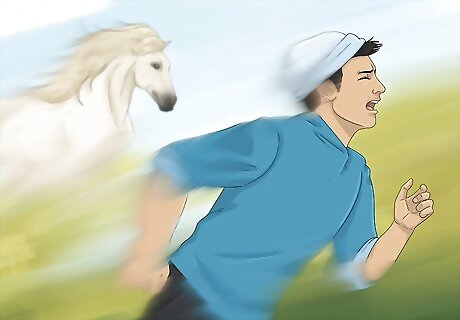
Being chased by a white horse may signify running away from your problem. You may be facing significant hurdles in your waking life—projects around your home that need doing, a big assignment or test, or other formidable responsibilities. In your dream, running away from the white horse reflects your hesitation to confront the problem head-on, instead putting it off or trying to find another way around it. What to do: Putting it off only delays the inevitable! Stop procrastinating by tackling the problem in small chunks, or reducing it to smaller issues. Then address each issue individually.
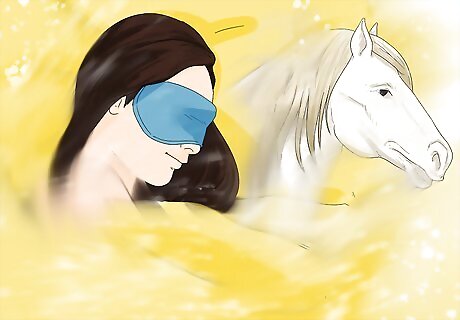
Pulling a white horse may symbolize a struggle for control. You may be struggling with anger, depression, or even fear in your waking life, and you’re trying to tame those emotions like a horse. But taming a wild horse is no small feat. Likewise, in your dream, your own emotions are represented by the white horse you’re trying to control. What to do: Help yourself control your emotions by stopping for a moment take several deep breaths, 10 seconds in, 10 seconds out. Calming your body is the first step to calming your mind.
Spiritual Meanings of a White Horse
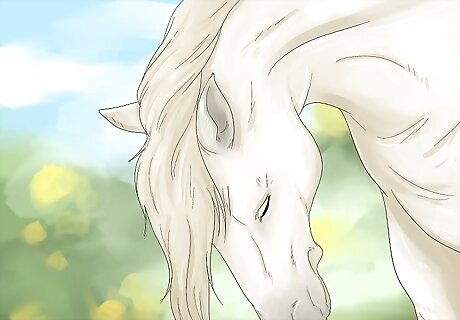
Purity Across many myths and religions, holy or mystical figures are often depicted riding white horses or riding in a chariot drawn by horses. This may be because white horses are seen as symbols of purity or goodness. They’re also symbols of divine intervention, or a heavenly deity coming to lend a hand in times of trouble.
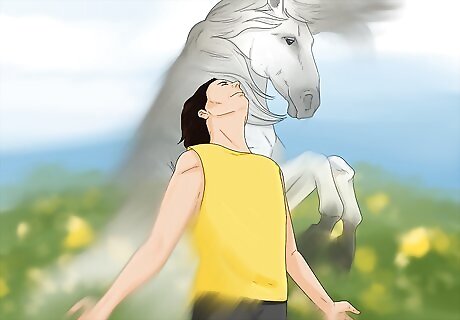
Transformation White horses in mythology often take hybrid forms, like pegasi or horses with multiple heads or feet. They also tend to carry their riders from one life into another, or to significant locations. These physical changes and spiritual journeys make the White horse a powerful symbol of transformation, both physically and spiritually. It reminds us that, though change is sometimes difficult, it’s often for the best.
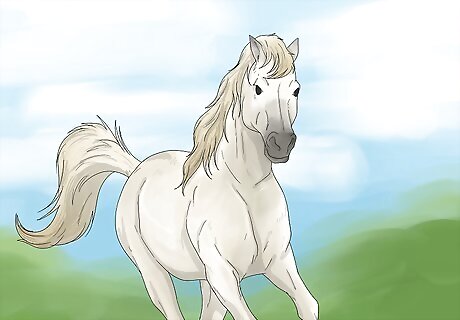
Freedom White horses are often symbols of unbridled freedom. There’s something mysterious and alluring about their color—we often picture workhorses as brown, black, or other common colors, but the white horse stands apart. Its bright coat suggests a spiritual animal that run wild and unburdened by saddles and reins, free of troubles and able to roam as it pleases.











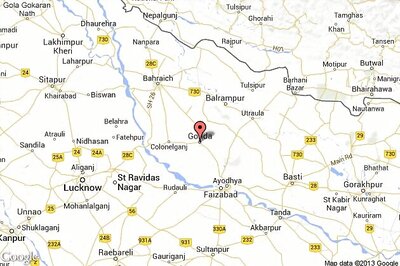







Comments
0 comment